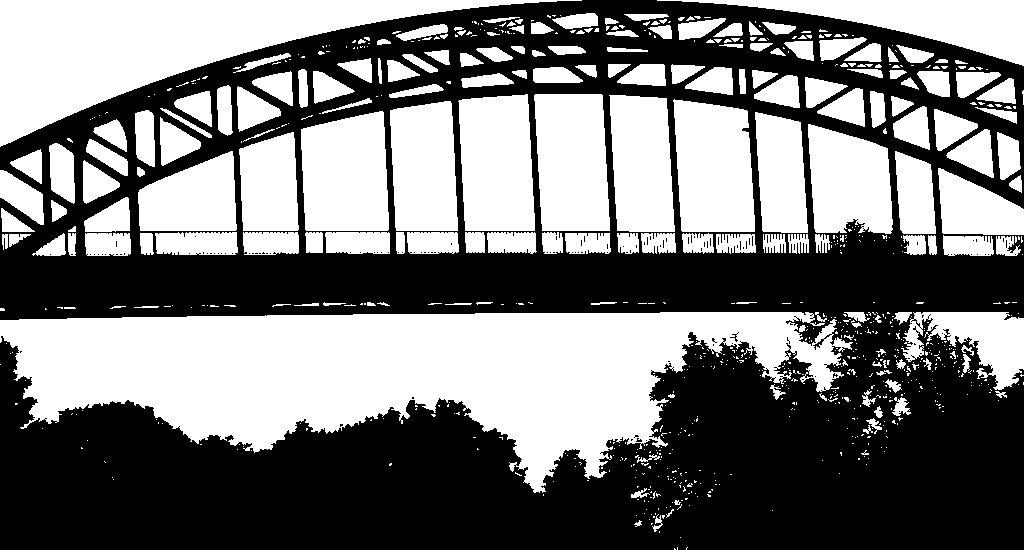Cost of Living Comparison

The financial aspect often determines relocation decisions, and both Portland and Seattle present distinct economic landscapes that significantly impact quality of life for newcomers.
Housing Costs: Seattle’s housing market consistently ranks among America’s most expensive, with median home prices reaching $850,000 in 2025. Rental costs average $2,200 for a one-bedroom apartment in desirable neighborhoods. Portland offers more affordable options, with median home prices around $580,000 and one-bedroom rentals averaging $1,600. This $270,000 difference in home prices can dramatically affect long-term financial planning for families considering relocation.
Daily Expenses: Seattle’s restaurant scene commands premium prices, with average dinner costs 20-30% higher than Portland. Grocery expenses follow similar patterns, though both cities benefit from excellent farmers markets and local food systems. Transportation costs vary significantly – Seattle’s extensive light rail system requires higher monthly passes ($150+ vs Portland’s $100), but both cities offer excellent public transit that reduces car dependency.
Tax Implications: Washington State’s lack of income tax provides substantial savings for high earners, while Oregon’s progressive income tax (up to 9.9%) can significantly impact take-home pay. However, Oregon’s absence of sales tax means daily purchases cost less, partially offsetting income tax burdens. Seattle’s sales tax reaches 10.25%, making major purchases notably more expensive than Portland’s tax-free shopping.
Utilities and Services: Portland’s renewable energy infrastructure keeps utility costs lower than Seattle’s, though both cities prioritize sustainable energy sources. Internet and telecommunications costs remain comparable, with both cities offering excellent fiber optic coverage and competitive pricing from multiple providers.
Employment Opportunities and Career Growth

Both cities offer robust job markets, but with distinctly different industry focuses that can determine career trajectory and earning potential.
Technology Sector: Seattle dominates the global tech landscape as home to Amazon, Microsoft, and numerous startups. Software engineering positions command salaries 15-25% higher than Portland equivalents, with senior roles often exceeding $200,000 annually. The city’s venture capital ecosystem provides extensive entrepreneurial opportunities, particularly in cloud computing, artificial intelligence, and e-commerce.
Portland’s tech scene, nicknamed “Silicon Forest,” offers more work-life balance with companies like Nike, Intel, and numerous startups. Salaries range lower than Seattle but often provide better benefits packages and more reasonable working hours. The city attracts professionals seeking technological careers without the intense pressure characteristic of major tech hubs.
Creative Industries: Portland’s creative economy thrives with advertising agencies, design studios, and media companies that value innovation and artistic expression. The city’s “Keep Portland Weird” culture supports independent businesses, offering entrepreneurs unique opportunities to build distinctive brands.
Seattle’s creative sector benefits from proximity to entertainment giants and established media companies. The music industry remains strong, building on the city’s grunge heritage, while video game development continues expanding with companies like Valve and Bungie.
Traditional Industries: Both cities maintain strong manufacturing bases – Portland in athletic wear and outdoor equipment, Seattle in aerospace with Boeing’s significant presence. Healthcare systems in both cities offer excellent career opportunities, with Seattle’s research institutions providing additional academic and medical research positions.
Startup Environment: Seattle’s mature startup ecosystem provides more funding opportunities and mentorship networks. Portland offers lower business costs and supportive community networks, making it attractive for bootstrap entrepreneurs and lifestyle businesses.
Climate and Weather Patterns

Pacific Northwest weather significantly influences daily life, and subtle differences between the cities can affect personal satisfaction and activity preferences.
Rainfall and Seasonal Patterns: Both cities experience similar precipitation totals (36-38 inches annually), but Seattle’s rain often comes in lighter, more persistent drizzle, while Portland experiences more varied precipitation patterns. Seattle’s marine climate creates more stable temperatures year-round, while Portland’s continental influences bring slightly warmer summers and cooler winters.
Sunshine and Daylight: Portland enjoys marginally more sunny days than Seattle, particularly during summer months. This difference becomes noticeable during the region’s famously long summer daylight hours, when Portland’s clearer skies enhance outdoor recreation opportunities.
Winter Considerations: Seattle’s proximity to Puget Sound moderates winter temperatures, rarely dropping below freezing. Portland experiences more temperature variation, with occasional snow events that can disrupt transportation. Both cities struggle with seasonal affective disorder during dark winter months, though Seattle’s marine layer can create more persistent gray conditions.
Air Quality: Portland generally maintains better air quality due to less industrial activity and favorable wind patterns. Seattle’s larger population and industrial base occasionally create air quality concerns, particularly during summer wildfire seasons that affect the entire region.
Cultural Atmosphere and Lifestyle
The cultural differences between these cities often determine long-term satisfaction for residents, as each offers distinct lifestyle advantages.
Food and Dining Culture: Portland’s food scene emphasizes creativity, sustainability, and accessibility. The city’s famous food cart pods, craft breweries, and farm-to-table restaurants create a more casual, experimental dining atmosphere. Portland boasts more breweries per capita than any other city, fostering a strong craft beer culture.
Seattle’s dining landscape reflects its international character and higher disposable income. The city offers more upscale restaurants, diverse international cuisines, and established culinary institutions. Seattle’s coffee culture, anchored by Starbucks’ origins, maintains sophisticated café traditions throughout the city.
Arts and Entertainment: Seattle’s larger population supports major cultural institutions like the Seattle Art Museum, symphony, and opera. The city’s music scene benefits from established venues and record labels, continuing its influential musical legacy.
Portland’s arts scene emphasizes grassroots creativity and community participation. The city supports numerous small theaters, art galleries, and music venues that encourage experimental and independent artistic expression. Portland’s “DIY” culture creates more opportunities for emerging artists to showcase their work.
Social Environment: Portland residents often describe their city as more relaxed and welcoming to newcomers. The smaller population creates more intimate community connections, making it easier to establish social networks and find like-minded individuals.
Seattle’s larger size provides more diverse social opportunities but can feel more impersonal. The city’s tech-heavy demographics create specific social dynamics that may appeal to professionals in similar industries but can feel exclusionary to others.
Transportation and Infrastructure

Daily mobility affects quality of life significantly, and both cities offer different approaches to urban transportation.
Public Transportation: Seattle’s Link Light Rail system provides excellent connectivity between neighborhoods and the airport, with continued expansion planned through 2030. Bus service covers the entire metropolitan area comprehensively, though traffic congestion can affect reliability.
Portland’s MAX Light Rail system offers more extensive coverage per capita, connecting suburbs to downtown efficiently. The city’s streetcar and bus systems integrate seamlessly, creating comprehensive public transit networks that reduce car dependency more effectively than Seattle’s system.
Cycling Infrastructure: Portland consistently ranks among America’s most bike-friendly cities, with protected bike lanes, bike-sharing programs, and cultural support for cycling commutes. The city’s flat terrain in many areas makes cycling accessible to residents of all fitness levels.
Seattle’s hillier terrain challenges cyclists, though the city continues expanding protected bike infrastructure. Electric bike adoption has grown rapidly, helping residents navigate the city’s elevation changes more easily.
Traffic and Commuting: Seattle’s traffic congestion ranks among the worst in America, with average commute times exceeding 30 minutes. Interstate 5 and SR-520 experience significant delays during peak hours, affecting quality of life for car-dependent residents.
Portland’s smaller size creates more manageable traffic conditions, though growth has increased congestion on major routes. The city’s urban planning emphasizes walkable neighborhoods and public transit access, reducing commute stress for many residents.
Decision Factors and Recommendations
Choose Seattle if you:
- Prioritize career advancement in technology or high-paying industries
- Prefer urban amenities and cultural institutions of a major city
- Want access to extensive outdoor recreation (mountains, water activities)
- Can afford higher living costs for potentially higher earning potential
- Enjoy diverse, international communities and sophisticated dining
Choose Portland if you:
- Value work-life balance and community connections
- Prefer more affordable housing and cost of living
- Appreciate creative, alternative culture and local businesses
- Want extensive cycling infrastructure and walkable neighborhoods
- Enjoy craft beer culture and experimental food scenes
- Prefer smaller city intimacy with big city amenities
Both cities offer exceptional quality of life within the Pacific Northwest’s stunning natural environment. The choice ultimately depends on personal priorities regarding career ambitions, lifestyle preferences, and financial considerations. Seattle provides more opportunities for career advancement and urban sophistication, while Portland offers better affordability and community connection.
